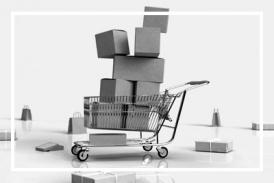Canada Invests Millions in Sustainable Mining Technology: Roberto Guzmán García
The integration of smart sensors and monitoring tools has facilitated predictive maintenance, allowing interventions only when truly necessary.
Automation and the implementation of new technologies have allowed the industry to enhance productivity, increasing operational efficiency and reducing labor costs. “In this regard, solutions such as data analysis systems have helped optimize processes, boosting material recovery and enabling companies to achieve superior energy performance,” says finance expert Roberto Guzmán García.
The impact of technology in the mining industry is evident in various areas. The integration of smart sensors and monitoring tools has facilitated predictive maintenance, allowing interventions only when truly necessary and thus preventing unforeseen failures.
This approach reduces downtime and improves operational efficiency. Additionally, advances in automation have helped improve safety at extraction sites by assigning high-risk tasks to robotic equipment, reducing workers’ exposure to hazardous conditions.
In countries like Canada, technological innovation has been a determining factor in transforming the mining sector. The incorporation of autonomous vehicles, drones, and advanced data analytics systems has redefined traditional methods of mineral extraction and processing. These tools not only increase productivity and safety but also help companies comply with stricter environmental regulations, reducing their ecological footprint.
The Canadian government has introduced initiatives to speed up the adoption of new technologies in the mining industry. Programs such as the Strategic Innovation Fund have allocated resources for projects that improve sustainability and safety in extractive operations.
Moreover, strategic partnerships among mining companies, technology providers, and academic institutions have facilitated the implementation of innovative solutions throughout the entire value chain of the sector.
Canada has solidified its reputation as a leader in sustainable mining due to its focus on innovation and energy efficiency. Local companies have developed technologies that reduce water consumption in mineral extraction, lowering the environmental impact of operations. The use of artificial intelligence and machine learning has optimized the identification of deposits, enabling more precise and less invasive explorations.
The country has also encouraged the shift to clean energy sources within the mining sector. The integration of renewable energy in mines has lessened dependence on fossil fuels, resulting in lower carbon emissions.
These initiatives position Canada as a leader in responsible mining, attracting investments and promoting a model of sustainable development. Recent industry studies show that over 60% of mining companies in Canada have adopted energy efficiency technologies in the last five years, indicating a significant shift in their operational practices.
“Innovative technologies not only improve efficiency, but they also strengthen companies positioning in a global market that demands responsible and sustainable practices,” says Roberto Guzmán García. Thus, adopting more efficient operational models not only addresses the need to reduce costs but also represents a long-term competitive advantage.
The integration of advanced solutions not only optimizes operations and improves safety, but it also reinforces the industry’s commitment to sustainability. With government initiatives and collaboration among key stakeholders, mining is on track to become a more efficient and responsible global industry.
Marcela Aguilar
Independent
email us here
Visit us on social media:
LinkedIn
Instagram
Facebook
YouTube
Legal Disclaimer:
EIN Presswire provides this news content "as is" without warranty of any kind. We do not accept any responsibility or liability for the accuracy, content, images, videos, licenses, completeness, legality, or reliability of the information contained in this article. If you have any complaints or copyright issues related to this article, kindly contact the author above.
Duco Consultancy Honored as a Regional System Integrator of the Year for Asia Pacific and Japan by Stibo Systems
ImagineHealth Partners with Deep Longevity to Bring Biological Age Testing to Thai Providers
Pier House Resort & Spa Unveils New Food & Beverage Experiences in Key West
Kalendarium
Więcej ważnych informacji
 Jedynka Newserii
Jedynka Newserii

 Jedynka Newserii
Jedynka Newserii

Konsument

Dzięki e-commerce rośnie eksport polskich małych i średnich przedsiębiorców. Wartość ich sprzedaży na Amazon przekracza rocznie 5 mld zł
Mali i średni przedsiębiorcy coraz lepiej radzą sobie na arenie międzynarodowej, choć na razie tylko niecałe 5 proc. z nich sprzedaje swoje produkty za granicę. Duże możliwości ekspansji zagranicznej dają im e-commerce i współpraca z marketplace’ami. Za pośrednictwem Amazon w 2024 roku polskie MŚP sprzedały produkty za ponad 5,1 mld zł. Model sprzedaży sklepu umożliwia przedsiębiorcom z Polski działanie na skalę, która jeszcze kilka lat temu wydawała się zarezerwowana głównie dla największych marek
Polityka
Większość Polaków sprzeciwia się wprowadzeniu euro. Problemem może być brak dobrej komunikacji

– Polska należy do siedmiu krajów UE, które do tej pory nie wprowadziły jeszcze euro. Choć zobowiązaliśmy się do przyjęcia wspólnej waluty w traktacie akcesyjnym, nigdy nie podjęliśmy konsekwentnych działań w tym kierunku – ocenia europosłanka Nowej Lewicy Joanna Scheuring-Wielgus. W dodatku tylko co czwarty Polak jest zwolennikiem zmiany waluty. Również obecna sytuacja gospodarcza – wysoka inflacja i rosnący deficyt – nie sprzyjają dyskusji o przyjęciu euro.
Handel
Źle wprowadzony system ROP może oznaczać duży wzrost cen dla konsumentów. Podrożeć mogą produkty spożywcze

Ministerstwo Klimatu i Środowiska proponuje powierzenie NFOŚiGW zadań organizacji odpowiedzialności producenta, która w imieniu producentów będzie realizowała obowiązki wynikające z ROP w ramach zamkniętego obiegu finansowego. Przedstawiciele Polskiej Federacji Producentów Żywności i sektora odzysku odpadów ostrzegają, że może utrudnić to Polsce wypełnienie unijnych wymogów w zakresie selektywnej zbiórki odpadów, a co za tym idzie, może się wiązać z karami, a w konsekwencji – ze wzrostem cen.
Partner serwisu
Szkolenia

Akademia Newserii
Akademia Newserii to projekt, w ramach którego najlepsi polscy dziennikarze biznesowi, giełdowi oraz lifestylowi, a także szkoleniowcy z wieloletnim doświadczeniem dzielą się swoją wiedzą nt. pracy z mediami.









.gif)

 |
| |
| |
|